Rainy Day Play: a Treasure Hunt for Kids
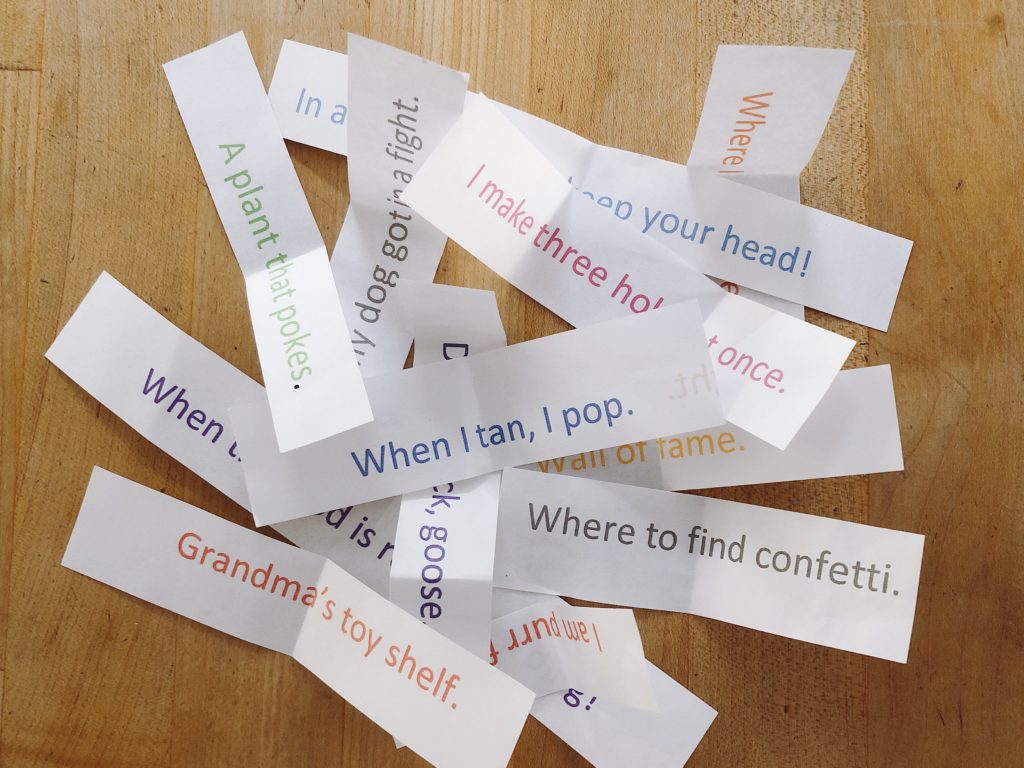
Miss T loves a treasure hunt. And so do I! It’s easy to plan a treasure hunt for kids as an after-school activity. Just take a little time to come up with some clues and prepare the “treasure.”
This is a perfect rainy-day activity because it’s a game best played indoors where you can keep the clues contained. You’ll hide clues around the house, each clue taking the child to another location, where there will be another clue directing them to the next place for the next clue, until they reach the treasure.
Expect a treasure hunt to occupy kids for about 20 minutes to a half hour, depending on the size of the house and the number of clues.
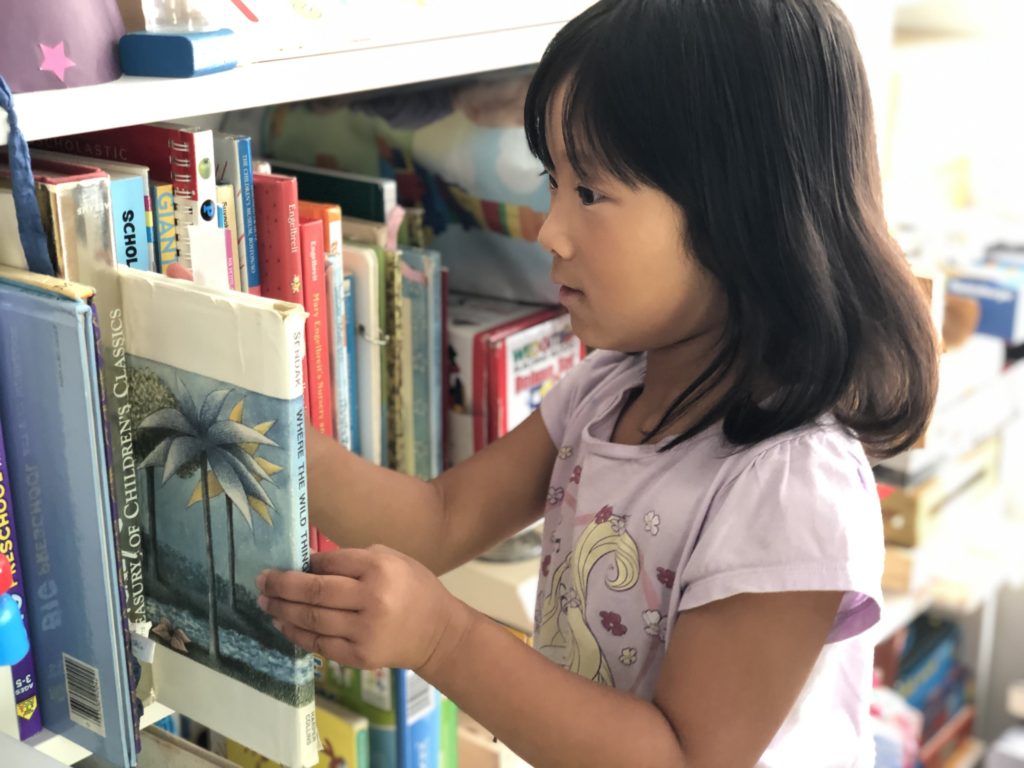
The Goal is to Find the “Treasure”
The appeal of a treasure hunt for kids is the joy of the hunt. So, the treasure can be any small thing. I use a little wooden box from Michael’s for the treasure box and fill it with a couple of small pieces of candy. Normally I try not to give the kids candy–which is why even a few pieces is a treasure for Miss T, who has such a sweet tooth.
Other treasures could be a little toy, a bottle of bubbles, or a handful of “jewels” from the craft store. You can tailor the reward to the interests of your child.
Another great rainy day activity for kids is to head for the kitchen and make deviled eggs.
Pick the Locations
- Scout around the house looking for places to hide clues and make a note of each location so you can write up the clues later.
- Plan on planting the clues in places that will take the child back and forth through your house to extend the game. If one clue is found upstairs, hide the next clue downstairs.
- Remember that the clue for any location should not be at that location itself. For example, if the clue is to be found in your kitchen utensil drawer, that clue needs to be hidden in the previous location, so the child is then directed to the utensil drawer, where they will find the next clue.
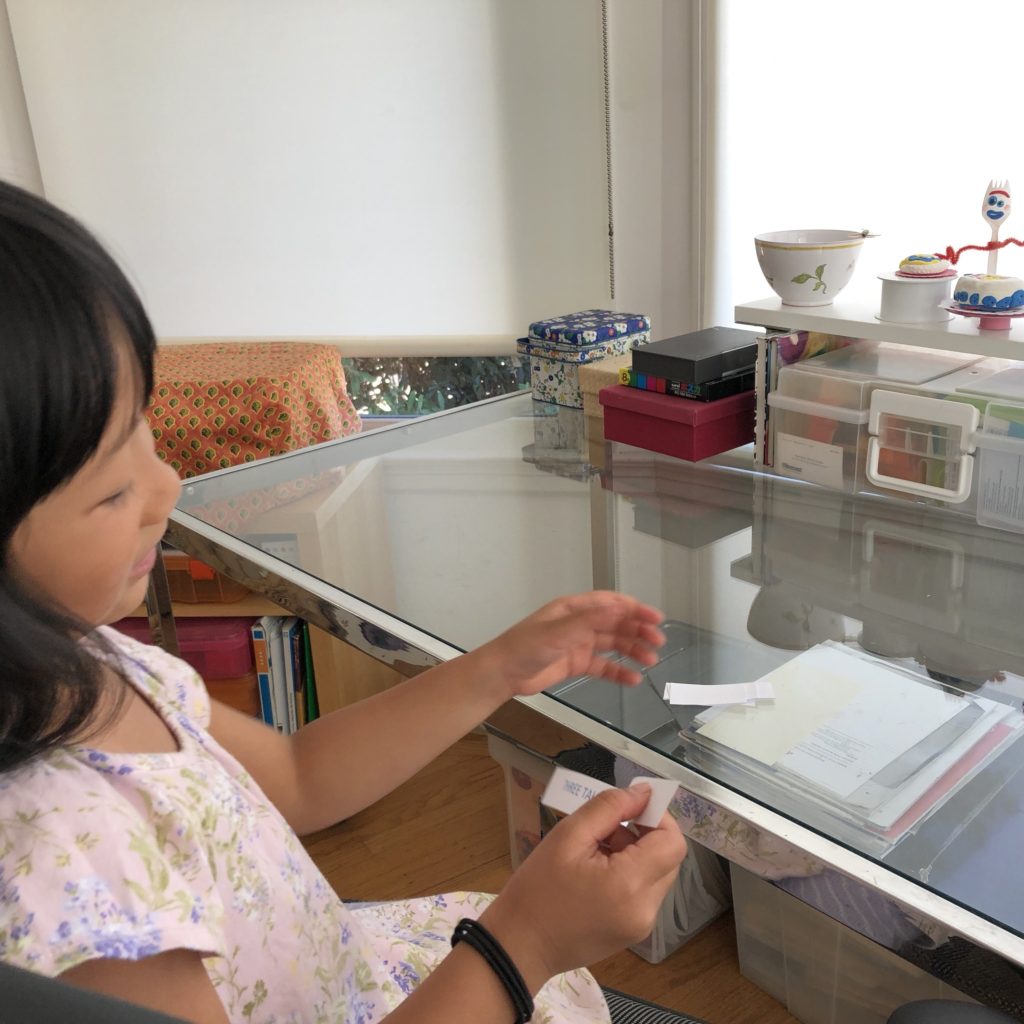
Write the Clues
Try to think of cryptic ways to express the clues so the child has to puzzle them out. Some of mine:
- “Grandpa on the wall.” (Where to look: framed picture of grandpa hanging on a wall, with the clue tucked in the edge of the picture frame.)
- “I make three holes at once.” (Where to look: under a three-hole punch in my office.)
- When I tan, I pop.” (Where to look: the kitchen toaster.)
- “Three tall ones stand together.” (Where to look: next to the three vases on a credenza.)
- “Make a pretty face.” (Where to look: my cosmetics vanity in the bathroom.)
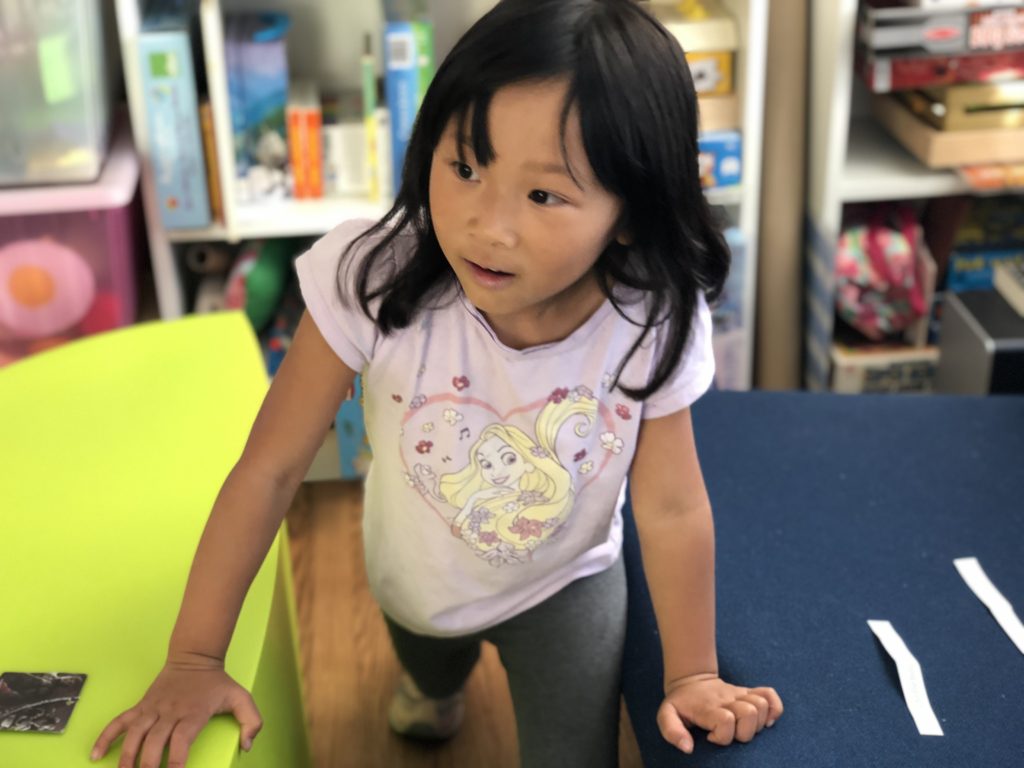
- “A seat in the sun.” (Where to look: the loveseat in the atrium.)
- “My brother and me.” (Where to look: under the life-size dolls I made of Miss T and her brother that share a chair in the living room.)
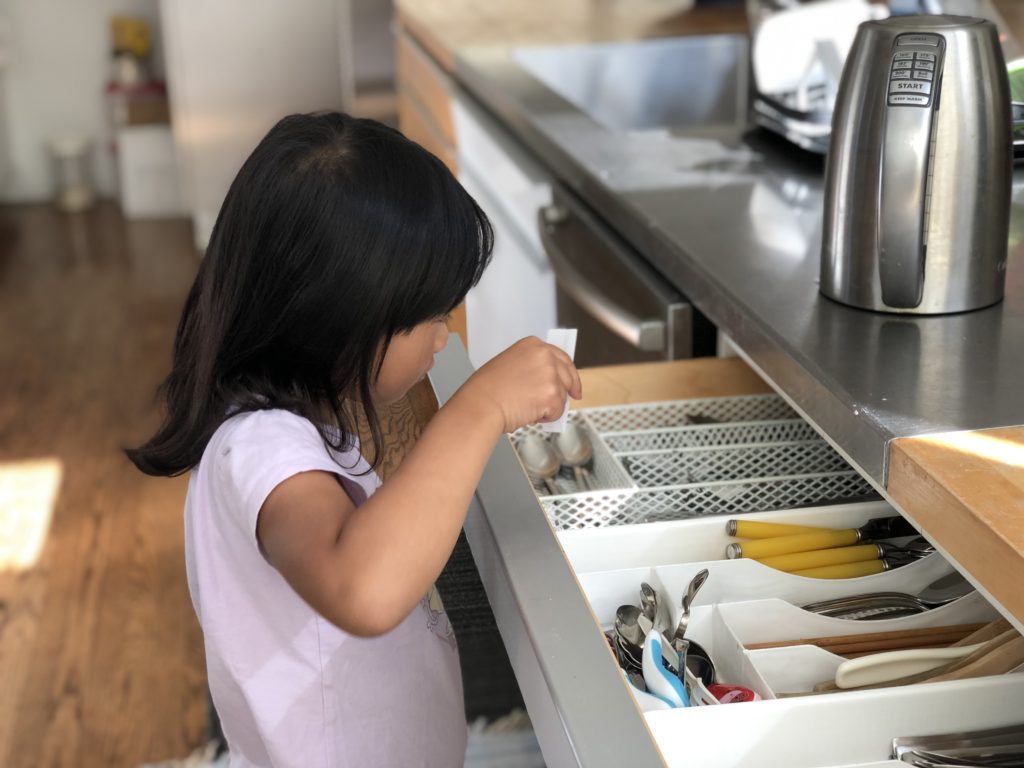
Once I’ve decided on all my clues, I type them up, print them in color, cut them into strips, and hide them in the order in which they should be found.
Notes:
- Give the child the first clue strip to get them started and let the child take it from there.
- If the child puzzles too long over a clue, give them “hot” and “cold” directions to guide them, so they won’t lose interest in the game.
- Miss T is now old enough to be able to read most of the clues herself. However, we have played this when she was four or five– by reading out the clues to the child.
- Grandma’s Note:
- While this is a single, self-contained activity, you can include it in a more comprehensive vacation program for the grandkids this summer.
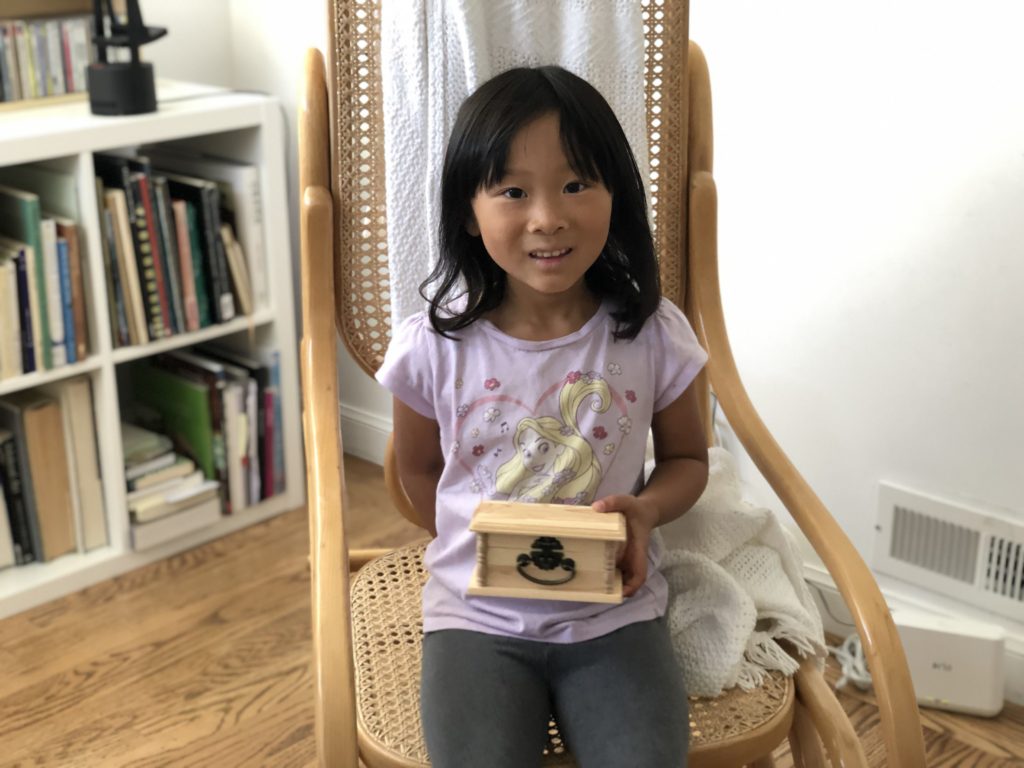
What Kids Learn from this Activity
- Sharpens thinking and reasoning skills.
- Encourages reading proficiency.
- Helps them to stay focused to see an activity through to reach a goal.
- Gets them moving around the house and keeps them entertained.
Sign Up!
Don’t forget to sign up for my email newsletter. Every Wednesday, I’ll give you a new idea for an activity or insight to nurture the little ones in your life.
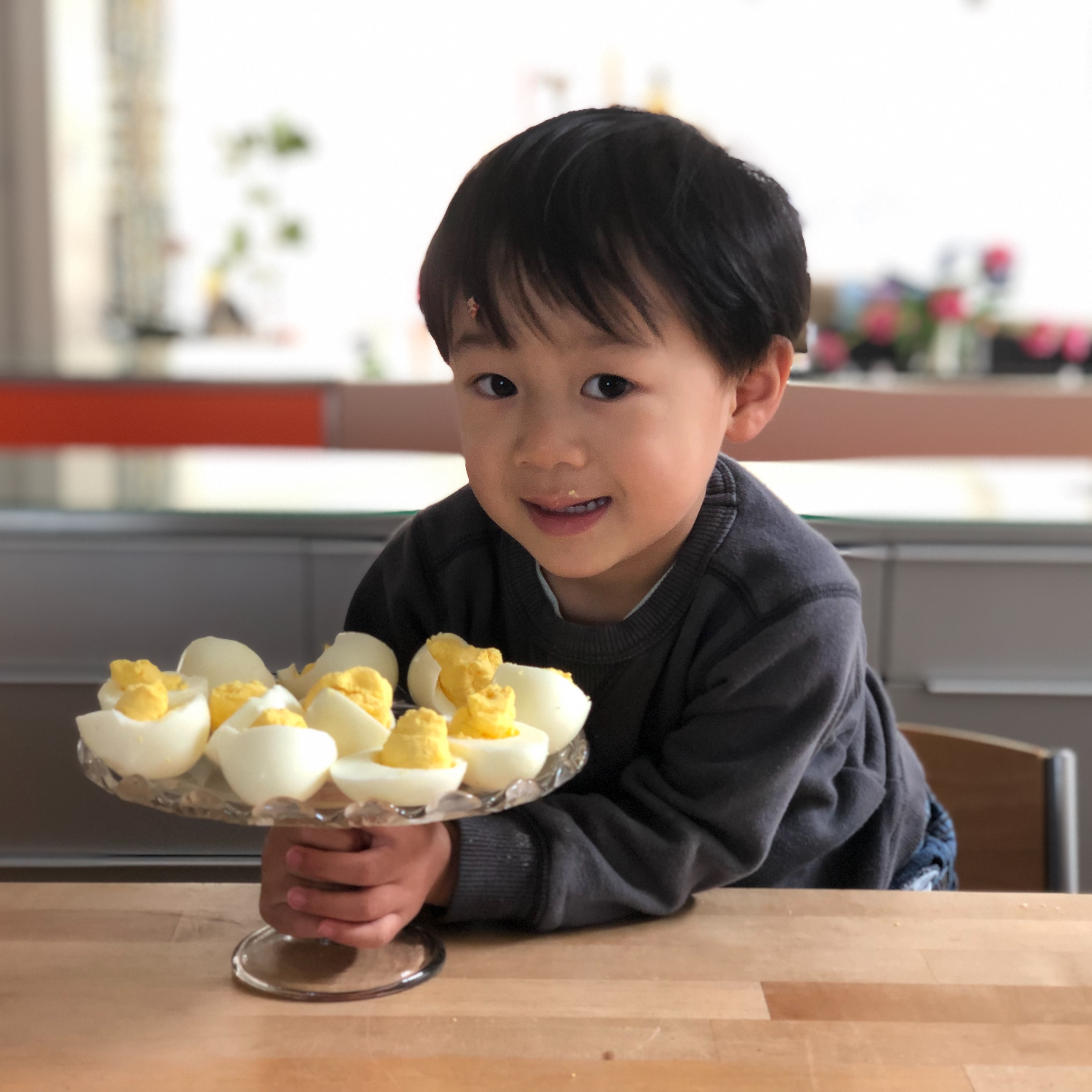
Miss T loves this. And it helps her develop analytical skills. Also, not just for rainy days but for those icy winter days for those in snow country!.
Yes, when snowbound, too!
You are the treasure in this story Grama!!
Thank you! So nice to hear from you.